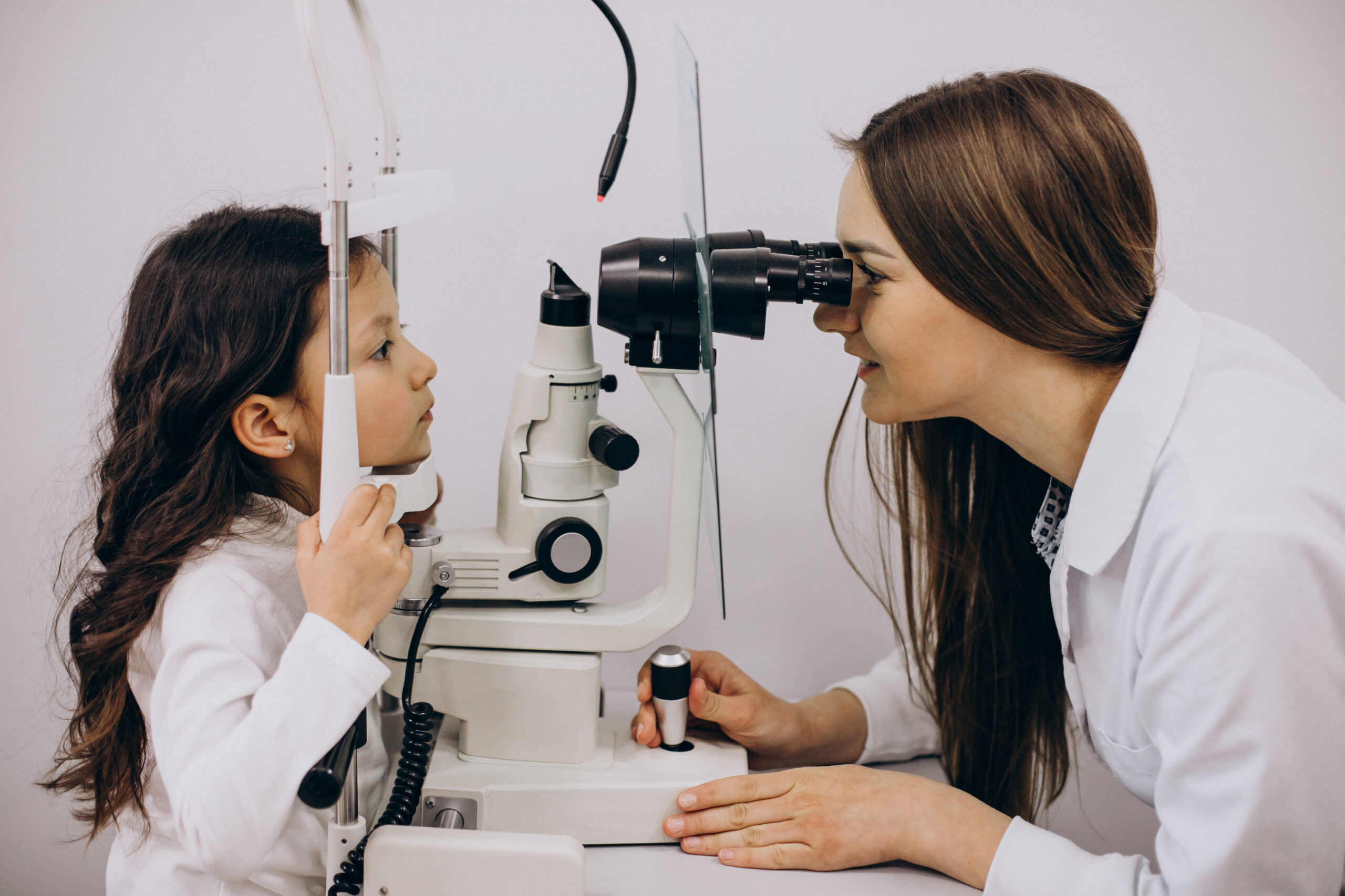What Are Routine Eye Exams in Children?
Routine eye exams in children are regular check-ups to assess a child’s vision and eye health. These exams help spot vision problems early. In fact, many issues can be treated best when found early. Children’s eye health is important for learning and daily life. During an exam, an eye doctor checks how well your child sees and how the eyes work together. The doctor also looks for signs of eye diseases or other problems. Routine eye exams in children are a key part of healthy growth.
Why Are Routine Eye Exams Important for Children?
Many vision problems in children go unnoticed. However, early detection can prevent long-term issues. Good vision helps children learn, play, and interact with others. According to the CDC, about one in four school-aged children has a vision problem. Routine eye exams help catch these issues before they affect school or social life. Also, some eye conditions can be treated only if found early. Regular exams support your child’s overall well-being.
Common Symptoms and Signs of Vision Problems in Children
Sometimes, children may not know they have trouble seeing. Therefore, parents should watch for these signs:
If you notice any of these, schedule a pediatric vision screening soon.
Recommended Schedule and Age Milestones for Pediatric Eye Exams
The American Academy of Ophthalmology and the CDC recommend these milestones:
Some children may need more frequent exams. For example, if there is a family history of eye problems, ask your doctor about the best schedule.
What to Expect During a Child’s Eye Exam
During a routine eye exam, the doctor will:
Most tests are simple and painless. In addition, the doctor may use fun games or pictures to help younger children feel comfortable.
Early Detection: Benefits and Outcomes
Early detection of vision problems leads to better outcomes. For example, treating lazy eye (amblyopia) early can prevent permanent vision loss. Children who see well do better in school and sports. Also, early eye exams can find hidden health problems, such as diabetes or genetic conditions. The benefits of early eye exam include:
Therefore, regular exams are a smart way to protect your child’s future.
Tips for Parents to Prepare Children for Eye Exams
Preparing your child can make the exam easier. Here are some helpful tips:
With these steps, your child may feel less nervous and more cooperative.
Prevention and Lifestyle Guidance for Healthy Vision
Besides exams, healthy habits support children’s eye health. For example, encourage your child to:
Also, teach your child not to rub their eyes and to wash hands often. These habits help prevent infections and keep eyes healthy.
Conclusion: Take Action for Your Child’s Vision
In summary, routine eye exams in children are vital for early detection and healthy development. Regular check-ups, healthy habits, and quick action if you notice problems can make a big difference. Consult a pediatric eye specialist for personalized advice on your child’s vision health.

